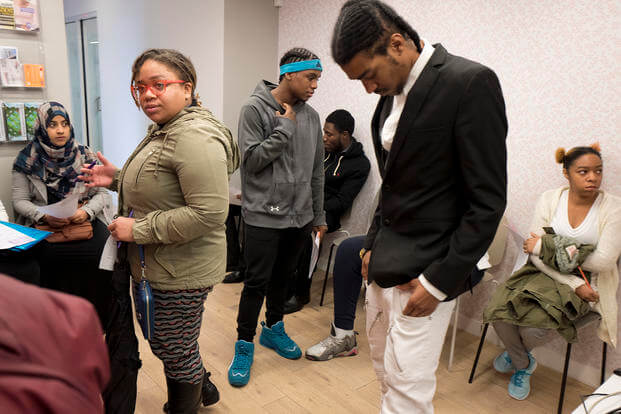If you've just been laid off, your first questions probably involve unemployment insurance. How does it work? How much will you collect? Where do you sign up?
The answers depend on where you live. Some unemployment insurance policies are set at the federal level, but states set most of the rules and run most of the programs, said Rich Hobbie, executive director of the National Association of State Workforce Agencies, a trade association for unemployment insurance agencies.
Get Started
Your first step is to find your state's workforce agency. Most states take claims via phone or the internet. You can also start at a One Stop Career Center or call the Department of Labor at (877) US2-JOBS (872-5627) to find your local unemployment insurance agency.
Who Gets It?
One way to tell whether you're covered is to find out whether you or your employer is paying unemployment insurance premiums to the state. But even that's not a guarantee. Some self-employed people must pay unemployment insurance premiums, even though they can't lay themselves off and collect unemployment insurance benefits from the state.
Most states set a few additional rules regarding who can collect unemployment insurance. First, you have to have worked for a certain amount of time, typically about a year and a half. Second, you have to be laid off -- not fired -- and you have to be in a covered position. Domestic, farm and self-employed workers usually aren't covered, Hobbie says.
Generally speaking, if you quit or don't look for work, you can't collect. But like all regulations, unemployment insurance rules often have exceptions. If you quit for "good cause," meaning because you were sexually harassed or asked to do something dangerous to your health, morals or safety, you may still be able to collect, says Hobbie.
Once you've qualified, you have to look for work and be ready and able to work. Each week, you'll be asked to show you're searching for work; otherwise you won't receive your benefit for that week. If you were to catch walking pneumonia and couldn't look for work, for example, you wouldn't be able to collect a check.
As you look for work, you don't have to take just any job. If you're a bridge painter and someone offers you an accounting job, you can decline and still collect benefits in most states. State laws and your prior jobs determine whether a job is suitable for you.
How Much?
In most states, your weekly benefit amount is based on your last job's wages. If you're a low-wage worker, your weekly benefit amount will be low, but the formula is progressive. Low-wage workers get the highest wage replacement rate, up to approximately 70% of their lost weekly wages. Average-wage workers get around 50%. High-wage workers will end up with less than 50% of their lost wages, because weekly benefit amounts are usually capped at amounts near what average-wage workers receive, Hobbie says.
You'll get that benefit for a certain number of weeks, usually capped at 26 weeks. Those 26 weeks of benefits last for a year. So if you were eligible for 26 weeks and you first collect for 10 weeks, find a job and then get laid off again, you'd have 16 weeks of benefits left.
Uncle Sam Giveth and Taketh Away
It's bad enough you don't have a job and your new "paycheck" is much smaller than you're used to, but what's worse is that unemployment compensation is subject to federal and often state income tax. You can have a portion of your check withheld, if you ask for it. If you don't, you might have an extra-large tax bill on April 15 of the following year, Hobbie says.
Read the Fine Print
Remember that unemployment insurance is a state-run program, so the general advice we're giving you is just that -- advice about how unemployment insurance works in most places. To find out exactly what the rules are where you live, check with your state's unemployment office.
Want to Know More About the Military?
Be sure to get the latest news about the U.S. military, as well as critical info about how to join and all the benefits of service. Subscribe to Military.com and receive customized updates delivered straight to your inbox.











